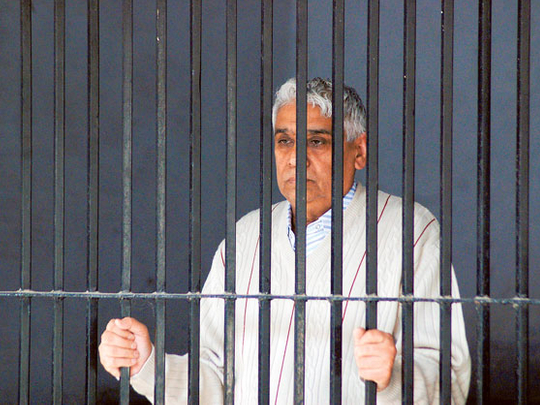
New Delhi: The business of faith, which mushroomed across India like an epidemic in the past 15 years, has now turned into an industry peddling false hopes. Ranging from the fakers to the fakirs, benign to the bogus, magical to the mafia, and spiritual to the sleazy, godmen of all kinds exist in India.
There is no dearth of such godmen — otherwise called ‘baba’, ‘guru’, ‘sant” or ‘swami’ — in the country who claim to communicate directly with God and possess powers of forecasting events. But invariably, some of these godmen live a secret life — one which involves the dark world of free sex and an unimaginable amount of unaccounted for money, often stashed in ‘ashrams’ (spiritual centres) or unknown destinations.
What is even more worrying is the fact that many such ‘swamis’ or godmen enjoy the patronage of almost all national and regional political parties. Thousands of Indians continue to put their trust in these ‘babas’ but few can imagine that most of them are basically common criminals involved in various kinds of money laundering and sex rackets.
The self-appointed godmen in India are usually found wearing a saffron robe with a string of rudraksh beads around neck and sporting a long beard. At times, they can be seen carrying a T-shaped wooden staff to rest their arms on.
This tells a lot about the Indian society. Indians seem so insecure about their lives that they end up seeking reassurances of the charlatans.
Enter the four-storey ashram of Chandraswami, the “spiritual adviser” of late Prime Minister Narasimha Rao, in South Delhi, you can feel the security system monitoring your every movement through strategically installed video cameras, with Chandraswami himself keeping a tab on you from his private chamber.
Chandraswami sits on a pedestal in his baroque marble-covered ashram, wearing a sparkling white dhoti, kurta and silk ‘angavastram’ (robe), with a large sandalwood ‘tilak’ prominent on his forehead. He boasts of his ability to read minds and cast spells. But his actual abilities are known to few. He exploits the gullibility of his high profile followers and manoeuvres them in a way that they do not ever realise that they have been duped.
Likewise, another ‘sant’ from Gujarat, Asaram Bapu, is believed to have a ‘hypnotic’ personality which has ‘attracted’ millions of devotees from all corners of the globe, transcending social barriers. Not only does Asaram and company play upon the natural human fear of death, but they also entice poor people from Orissa, Bihar, Uttar Pradesh and other backward states by promising an inner spiritual journey and eventually making them rebel against their own families. Such gullibility concerning godmen is a truly a pan-Indian phenomenon.












